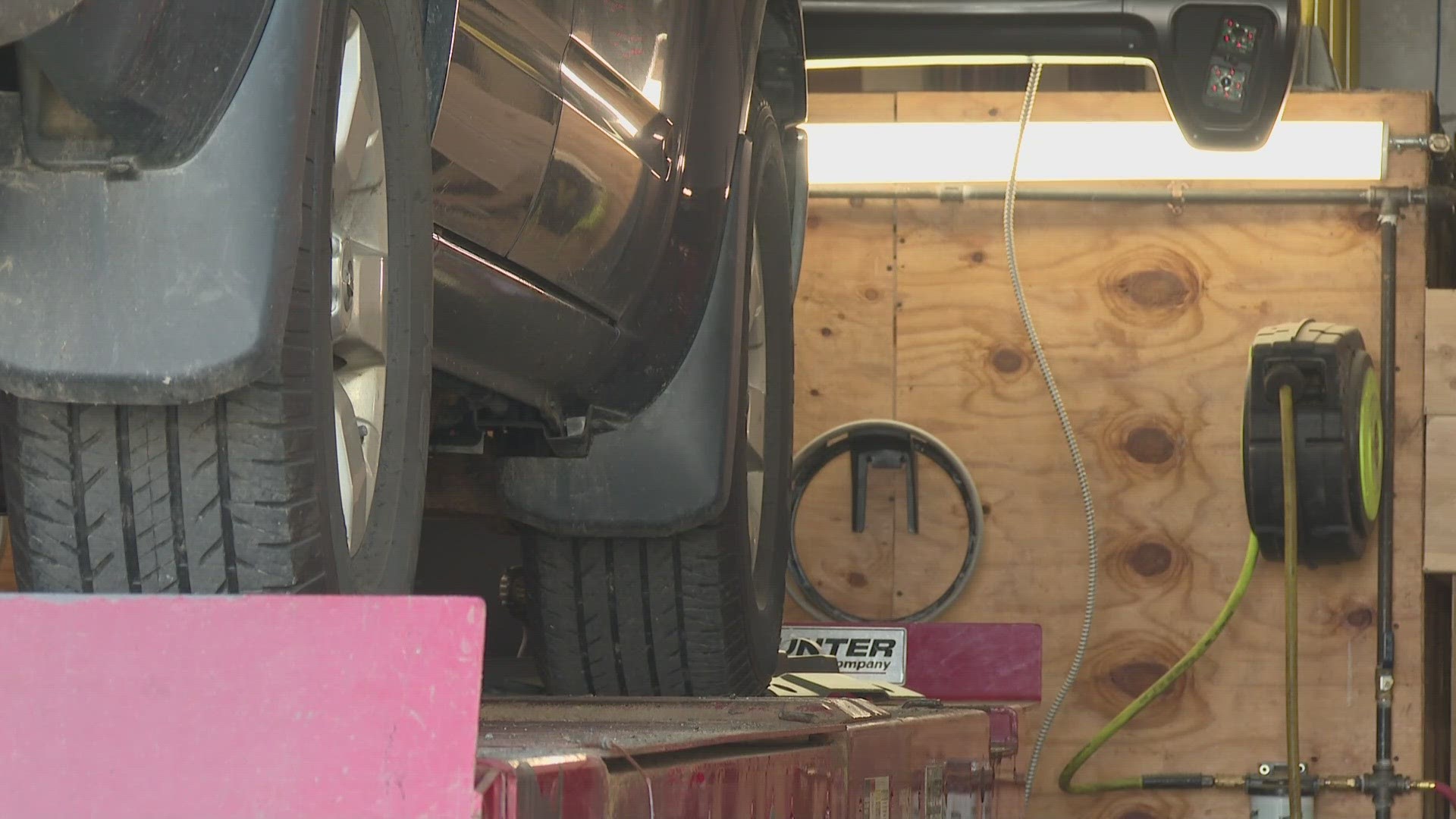AUGUSTA, Maine — While dozens of the United Auto Workers union members continue to strike against major carmakers, auto repair shops in Maine and beyond are staying cautious of the strike's larger impacts.
"So if the strike goes on for too long, we're going to start to see some impact in terms of what we call dealer parts," Al Sutherland, owner of Al's Certified Auto Repair in Augusta, said.
Oftentimes, if those dealer parts are pricey, Sutherland says repair shops work with independent manufacturers to find either more affordable or available parts.
However, if a car specifically needs a dealer part, customers may soon have to either pay more or wait longer for a part to come in.
"Right now, the impact is not dramatic," Sutherland said. "As [the strike] trickles down to the vendors who actually manufacture those parts, that's where we start to see that impact."
Sutherland says he and his workers saw a similar story play out during the pandemic, and many auto repair stores didn't see the impact until years later after excess inventory ran dry.
However, with a lack of inventory from the aftermath of that shortage, both Sutherland and economists believe folks may see the strike's impact on parts sooner than later.
University of New England Assistant Professor of Economics Oak McCoy says a lack of inventory often causes consumers to become less responsive to a change, or increase, in prices.
"Essentially what this does is it allows firms to then raise the price of those products... and so we see these disruptions; we saw it during COVID. We're starting to see it again now," McCoy said.
McCoy also says the impacts the strike will have on the price of parts will go hand in hand with recent inflation to drive up price tags.
"If we see these disruptions to the supply chain as a result of the strike, it's going to further compound those prices that we've seen rise," McCoy added.

